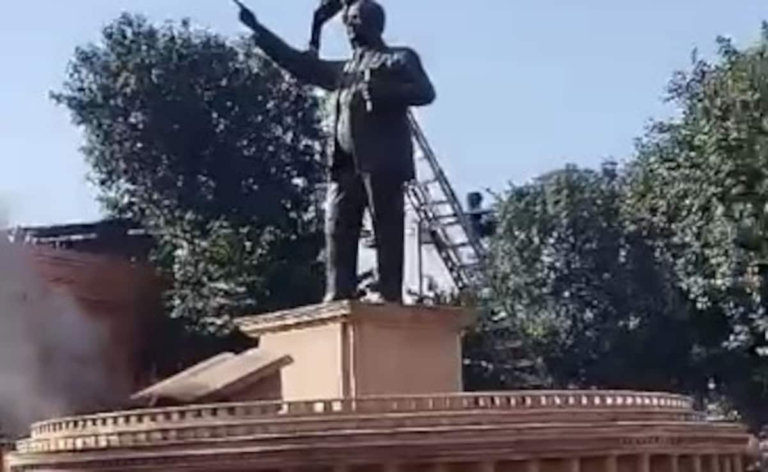
One day after Spanish official Luis Rubiales finally resigned from his leadership jobs, European football body UEFA hosted a storied group of women players and coaches for a conference on Monday to help shape a brighter future for their game.
And when it was over, UEFA thanked its now-former vice president “for his many years of service” in its first major statement since Rubiales’ conduct at the Women’s World Cup final three weeks ago that is now under criminal investigation in Spain.
RELATED | With Rubiales finally out, Spanish football ready to leave embarrassing chapter behind
Three Ballon d’Or winners joined the UEFA meeting in person or online. They included Alexia Putellas, one of Spain’s World Cup-winning team whose triumph has been tarnished by the furor since Rubiales kissed her teammate Jenni Hermoso on the lips during the trophy ceremony. Hermoso said it was without her consent.
At UEFA’s headquarters was Veró Boquete, who as Spain captain eight years ago joined a player revolt that removed the long-time and unpopular male coach of the national team.
“Today, this subject obviously came up,” Boquete told The Associated Press when asked if the Rubiales controversy was on the agenda. “A little bit (of) specifics but also in general, what we can do to protect players or to give them a safe space.”
UEFA launched its Football Board for women’s football this year to create “an institutional yet independent voice of experience and expertise” on subjects including player welfare.
Its first meeting Monday afternoon in Switzerland opened less than 24 hours after Rubiales resigned. He accepted the inevitable end of his football presidency in Spain after three weeks of defiance and hostility toward his critics and at times Hermoso.
Rubiales, who said the kiss was consensual, is suspended by world football body FIFA during its disciplinary case against him and also accused of sexual assault by Spanish prosecutors. He has denied any wrongdoing.
His resignation late Sunday — which appeared coordinated with an interview on a British cable news channel — offered no apology to Hermoso. He did stress not wanting to distract from Spain’s bid to host the men’s 2030 World Cup in a UEFA-backed project with Portugal, Morocco and possibly Ukraine.
UEFA was silent on Rubiales, one of its six vice presidents each paid 250,000 euros ($270,000) annually, for 10 days after the final in Australia. UEFA president Aleksander Ceferin then told French sports daily L’Equipe the conduct was “inappropriate.”
In the statement Monday noting Rubiales’ resignation, after Ceferin had lunched with the women delegates, there was praise but not words of solidarity toward the Spanish players or women’s football in general.
“UEFA acknowledges the public discourse surrounding Mr. Rubiales and his recent actions but would also like to thank him for his many years of service to European football,” it said. “In view of the ongoing legal proceedings, UEFA has no further comments to make on this matter.”
Speaking before UEFA’s comments were published, Boquete described the situation as “a mess” though was optimistic.
“What happened in the last three weeks is a mess, but at the same time it can be the right push,” the 36-year-old player told the AP. “How you use a bad situation, bad actions, to change something for good?”
“We have the opportunity here,” said Boquete, whose 38 goals for Spain is second on its all-time women’s list behind Hermoso.
One positive is that Spain’s players should end their refusal to represent their country now Rubiales has gone and the coach he supported during a player rebellion last year, Jorge Vilda, was fired last week.
“In theory, all the players should be back with those demands they (made),” said Boquete, whose national-team career was ended six years ago by Vilda not selecting her. “It’s a good start, we hope that now also the players can be heard more.”
After playing football for clubs in the United States, Russia, China and across Europe, the former Women’s Champions League winner was a natural choice for the UEFA advisory panel. She also has been educated with UEFA’s help on its Masters course to help players build careers in the industry.
“If you want to have a place that everyone can hear you or listen to you, you need to know what you’re going to say,” Boquete said.
UEFA did not make any senior manager available for interview at its event Monday.
(This news is published through a syndicated feed courtesy SportsStar – The Hindu)



